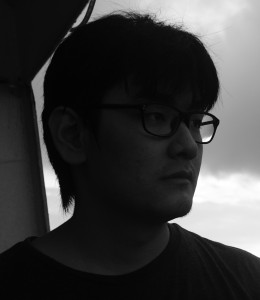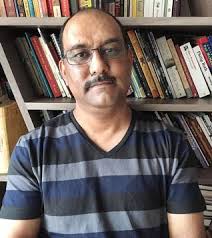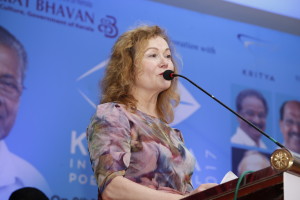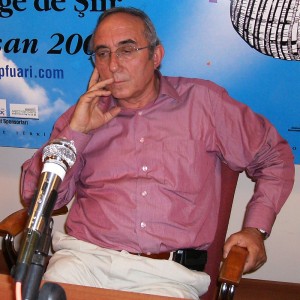At the Kritya Poetry Festival in India, elixir poetry succeeded in reaching the most marginalized culture, overcoming distrust, strangling and prejudices, bringing people together in a new way.
DORIS KAREVA
I am the creator of the word, always on the move in accordance with the truth of the last Truth. I live in a human heart, raising my voice to protest against any falsehood, most evil and injustice. I’m putting myself in a black-and-white format – poetry is one of the most powerful ones.
From 9 to 11 November, the XI Poetry Festival “Kritya” in Thiruvananthapuram was held, this time under the title “Poetry against xenophobia and racism”. The event was attended by 22 poets around the world and at least as much as Kerala writers, artists and musicians. The collection of the festival is a picture labeled “Poetry as Elixir Treating Everything”. Sounds high on the go – but it was a try.
More than half a century ago, India, as a natural parade, opened for four young British musicians in Kerala, which is still reminded of the Beatles Bar in Kovalam, astonishingly in the spectacular coastal area where tourists mostly invade.
Today, the Keralat has a communist party with lush vegetation and the possibility of a beer or wine glass in the hotel is characterized by large, rather rare posters. The body needs to be covered and, for example, in the street for kissing, it’s easy to fall behind bars, as the poets immediately warned at the beginning of the festival.
True, behind the bars will lead the other you. Eventually, this event finally took place, which was organized by the organizer of the festival, Rati Saxena *, for many years – a visit to the historic 1898 Central Killed in Kerala, where 1238 men were visiting us. In India’s history, this was the first time poets have appeared in the detention center – and probably also for prisoners, for the first time, to hear poetry, in addition to the Malayalam translation in another twenty languages.
A visit to the Kritha Poetry Festival in Kerala Central Ward was the first time poets in the history of India to appear in detention facilities. Take pictures of the prison of the interior.
Doris Kareva
I have been to Estonia during the Soviet era in the Patarei prison and later meet Murru prison’s literary circle, and these impressions have left a deep impression on the memory. I was thinking that the most severe punishment is perhaps not limited to the movement or the other freedoms, as the deprivation of human beings from all forms of beauty, natural contact with nature – how to think about life beyond the ability to even observe cloud movements in the sky? The humiliating, often mocking attitude of the concrete and guards, as well as the Congolese, can only calm down the soul by breaking the soul of a person by day; the time that in the exterior is a rare property, flows not only empty into forced conditions, but becomes a part of suffering, begins to work against any conceivable purpose.
In this desperate environment, Mare Riimets has been an admirable work for 30 years as a literary teacher at Murru Prison. His retinue even appeared on the black dressing room of the Writers’ Union with the show “Little Prince”. One can only imagine what it meant for the participants.
Kerala’s historic central prison left a different, rather monastic, impression. Above all, the focus is on preparing prisoners to return to their normal world. Both burgers are baking daily a simple Indian bread, with the sale of which they receive a small amount of money. The clock from eight to four runs, then it is possible to engage in painting, horticulture or sports, of course, is under surveillance. There are more than 12,000 works in the library, some prisoners write themselves.
Everything was surprisingly clean, a long white prison was made by colorful frescoes inspired by Profi’s guidance. In the warm climate between lush plants, the silence of the long prisoners of the white rocks beat the prisoners rather than the sanatorium guests as a punishment. And so, with what focus they were listening to the poet’s captured, he impressed. There was no creeping insult in them, be it the reason for the presence of modest stamps inside and outside the wall or a long-standing waist for a few years old child who came for a deceased father to a prison guard behind the door.
When I was speaking, I spoke about Estonian shipyard who, at the same time, was waiting for a fourth sentence in the Chennai prison in the Tamil Nadu neighborhood. Of course, the retardation of the court as one of the torture of life is called by Hamlett in his famous monologue, so it is a universal suffering. When reading a poem in the native language, it seemed as if the wind could have been earmarked by the ship’s protectors; however, I emphasized that Estonia is waiting for them back in the long run.
The gunmen guarded the gunmen behind them; the big doors were open so that the air was moving. At the same time, the tombstones started, the weather went dark, and nearly half an hour of thunderstorm flowing over the moon over all the borders and tracks. As if it were a strange liberating ritual, it swept away the last prejudices and became influential as a powerful artistic theater. When we came out of our prison, we had a fire service in the local temple, and prayers for the sacred smoke. A few days later, news came that Estonian ship protectors were released.
The next day, we visited the Sai Grams Orphan’s House and the nearby old-age home. In a naturally lush, picturesque environment that was surrounded by paths, between temples and pillars decorated with saints and paintings, we met schoolboys – girls live separately in another place – we shared stories, songs and collected gifts.
The predominantly privately funded Sai Gramam is chosen for orphans based on tests: good education is aimed at relatively few but talented and entertaining children and young people. The visit of the poets took place for the first time and left behind its mark. True, the Turkish poet Ataol Behramoğlu’s rather personal story about his father, who was early orphaned in the Second World War, but found his way, got education and raised four sons to the top-level, it seemed to everyone’s hearts to breathe.
The old man’s home was dim and quiet, calm and clean. Each room had at least a dozen beds, and looms in one room. The half-vote was chaired by “our oldest, 95-year-old poet” whose names and works were not mentioned and did not seem to matter.
The poet sat in the tropical gloomy gloomy and motionless, only around the noisy body of a gray-haired body, on a high chair like a holy shrine. Sometimes he spoke to him, but in the eye he sparkled the torch – yes, he recently deals only with the spiritual literature … When the poet closed his eyes after falling back into a kindly conversation with a kindly conversation, it seemed that he was really ready to get rid of the body from the cocoon and to rise in spirituality with the beaming flame.
Impressive was the singing, almost hypnotic way, of his poetry, Sreekumaran Thampi, as well as Prabha Varma – this may sound like centuries-old Kabiri verses. Among the guests were previous acquaintances such as Yolanda Castaño and Philip Meersman in Estonia, as well as many new discoveries: performance artist Heike Fiedler from Switzerland, poets Lina Ekdahl from Sweden, Yu Jian from China, GökÇenur Ç and Selahattin Yolgiden from Turkey, and several others.
The festival included meetings at numerous cultural and educational institutions from the Catholic Marian College of the Ivory Coast to Kerala’s romantic poetry classical Kumar Asan birthplace in Kayikkar, where the overwhelming marble palace shone on the shores of the deserted and picturesque sea, in the middle of the small shingle villages. The event started and ended in a Bharat Bhavan Cultural Center, where animation art created on the basis of poetry, as well as on-site paintings, engaging music, and burning conversation could have been completed.
Instead of routine supper, this time food was ordered as a nursing career – those who do not have education or special skills, but who are prepared to make home-grown foods for guests at low rates for their home-grown foods. Feeding with fingers on foil, drinking water from the afternoon, and nobody left anyone starving. The elixir of the poet really was able to attain this time from the most indifferent to culture, to overcome any distrust, stranger and prejudices, to unite people in a new way. Sometimes, even the tedious experience can be remarkably refreshing.
* The Kritya festival organized by poet, translator and researcher Rati Saxena has previously featured Mathura, Triin Soomets and Eeva Park. Ratha Saxen’s poem collection “Keep My Cardoids” was released in Estonian in 2015 (All-Star).
Post Views: 106
Reaction from a few poets-
 A wonderful festival showcasing the global poetry flavours to Trivandrum.
A wonderful festival showcasing the global poetry flavours to Trivandrum.
With unique partnerships in having poetry readings at prison, in an orphanage, a cultural centre, at university and the state library.
Having traditional readings as well as presenting more performative poetry and experimental forms like video poetry and electronically augmented poetry readings.
On my way to my work now.
although doing what I love to do isn’t really ‘work’ is it?
Thank you Flemish Literature Fund for supporting my trip to India and the Kritya International Poetry Festival curated by Rati Saxena and with all these great poets from across the world. Very fond memories and a huge amount of notes to read through and edit
Philip
——————————
My dear Rati,,
Now you must have a rest and get back your force and energy.
You are for me the Queen of all Poetry Festivals in all over the world.
Many thanks and conguragulations.
Ataol behramoglu
—————————
Thanks  to the Kritya International Poetry Festival, I enjoyed every moment of my stay in Thiruvananthapuram. With its intermittent rains, tidy roads and clean air, the beautiful city provided a welcome contrast to the dangerously polluted Delhi. The response from the English department students of Sree Narayana College, Chempazhanthy, and of Mar Ivanios College was overwhelming. Rati ji, I am very grateful to you for showing me a new world and for introducing so many brilliant poets. Thank you.
to the Kritya International Poetry Festival, I enjoyed every moment of my stay in Thiruvananthapuram. With its intermittent rains, tidy roads and clean air, the beautiful city provided a welcome contrast to the dangerously polluted Delhi. The response from the English department students of Sree Narayana College, Chempazhanthy, and of Mar Ivanios College was overwhelming. Rati ji, I am very grateful to you for showing me a new world and for introducing so many brilliant poets. Thank you.
Best wishes,
Sarabjeet
—
Dear Rati
Glad to receive your letter. I had intended to send you a letter after returning t o China, but there are so many things in school that I am really sorry to drag on to now.
o China, but there are so many things in school that I am really sorry to drag on to now.
First of all thank you for your generosity so that I and Shaofu can come to India with our teacher (and of course your generous savings from our room rates).
India is our fascinating place, this time our dreams come true. For the first time, we read our work in front of so many people, especially in front of cute students. Their passion has touched me and these experiences are very important to my writing. The trip to India has also changed my view of what it means to live a better life. I will continue to think about this trip, to share with you again.
You have paid a lot for the festival, hoping to see you again in China’s poetry festival.
Best wishes!
Zhao Fan
————
Dear Rati,
Sor ry for writing back so late. I don’t have a computer at home and last two days we had no electricity at the office due to infrastructure works on the street.
ry for writing back so late. I don’t have a computer at home and last two days we had no electricity at the office due to infrastructure works on the street.
Beyond success, Kritya was so good for me. I felt we, poets can be useful for the society with our poetry and our poet identities in a direct manner when we read in the prison and in the orphanage. Maybe you should start a worldwide Poetry Healing movement…
I’ll send you the poem I wrote in Trivandrum, the tale I told the kids and the story about my ticket with the ministry. I’ll also write a note on Kritya but I need few days to arrange all these.
Thank you again for bringing us together. We have a larger poetry family now.
Hugs
Gökçenur Ç.
———————————————————
I  came back happily tired (killing humidity) from Trivandrum after attending Rati Saxena’s thoughtfully organised Kritya International Poetry Festival. Met very talented poets from around the world. We read poetry in many languages in colleges, prison,village,orphanage,library and among ourselves. It was for many of a life time experience to visit an inside of a prison and sitting and talking with the inmates of an orphanage. Thank you #Krityainternationalpoetryfestival, Thank you Rati Saxena and team and all the poets and audience in all the venues for making four days of my life beautiful. Kritya festival was an unforgettable life event.
came back happily tired (killing humidity) from Trivandrum after attending Rati Saxena’s thoughtfully organised Kritya International Poetry Festival. Met very talented poets from around the world. We read poetry in many languages in colleges, prison,village,orphanage,library and among ourselves. It was for many of a life time experience to visit an inside of a prison and sitting and talking with the inmates of an orphanage. Thank you #Krityainternationalpoetryfestival, Thank you Rati Saxena and team and all the poets and audience in all the venues for making four days of my life beautiful. Kritya festival was an unforgettable life event.
Hemant Divate
——————————————————————–
So  our fest is over, four days of reading, listening, being and thinking in the trouble of our divided world together, here in the muddy waters of beautiful Kerala, with poetry as our shared path and goal as Enrique Severin put it. Grateful to have been part of Kritya 2017, thank you Rati Saxena for putting this troupe together, for your autonomous vision and wild imagination, and thanks to the Dutch Foundation for Literature for the support. Hope to see you all again soon.
our fest is over, four days of reading, listening, being and thinking in the trouble of our divided world together, here in the muddy waters of beautiful Kerala, with poetry as our shared path and goal as Enrique Severin put it. Grateful to have been part of Kritya 2017, thank you Rati Saxena for putting this troupe together, for your autonomous vision and wild imagination, and thanks to the Dutch Foundation for Literature for the support. Hope to see you all again soon.
Frank Keizer
—————————————————————————–
Hello Rati,
 arrived last night from Delhi and travelled today to Tartu for two readings, just back now and totally exhausted. But happy and very grateful for the chance to attend Kritya – a masterful festival. I will write a few words about it for Ashok very soon. Spoke about it in Delhi, Indian International House and at a reading in India’s oldest art gallery, today in educational conference organized by ethic centre of Tartu University and in a school at a literary day for young kids…
arrived last night from Delhi and travelled today to Tartu for two readings, just back now and totally exhausted. But happy and very grateful for the chance to attend Kritya – a masterful festival. I will write a few words about it for Ashok very soon. Spoke about it in Delhi, Indian International House and at a reading in India’s oldest art gallery, today in educational conference organized by ethic centre of Tartu University and in a school at a literary day for young kids…
Doris


